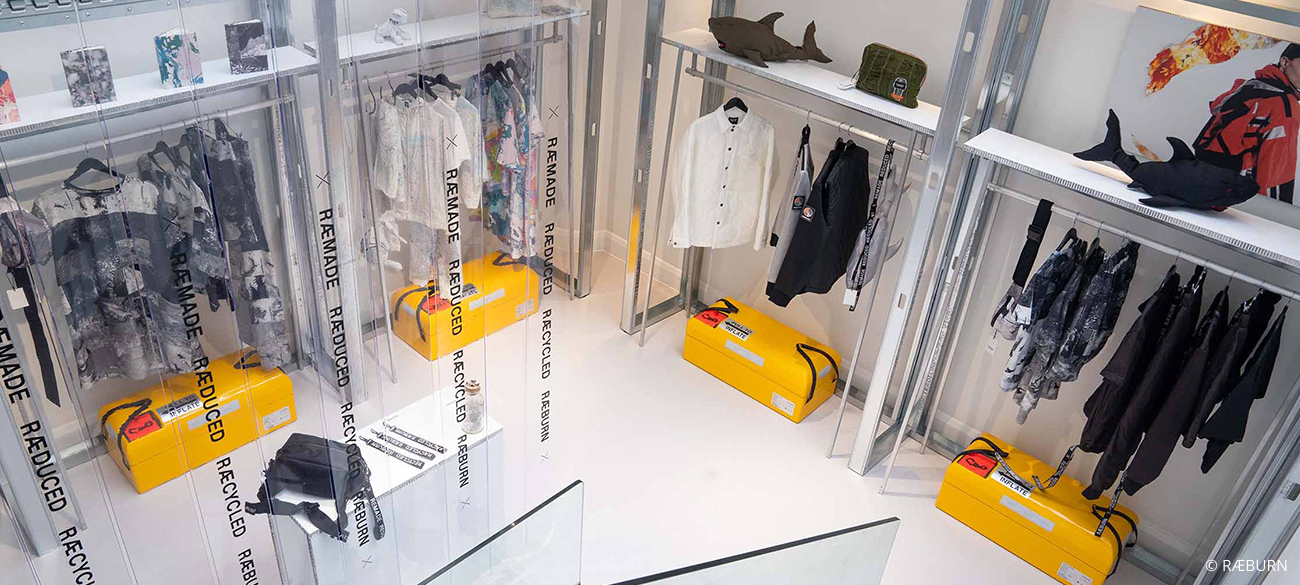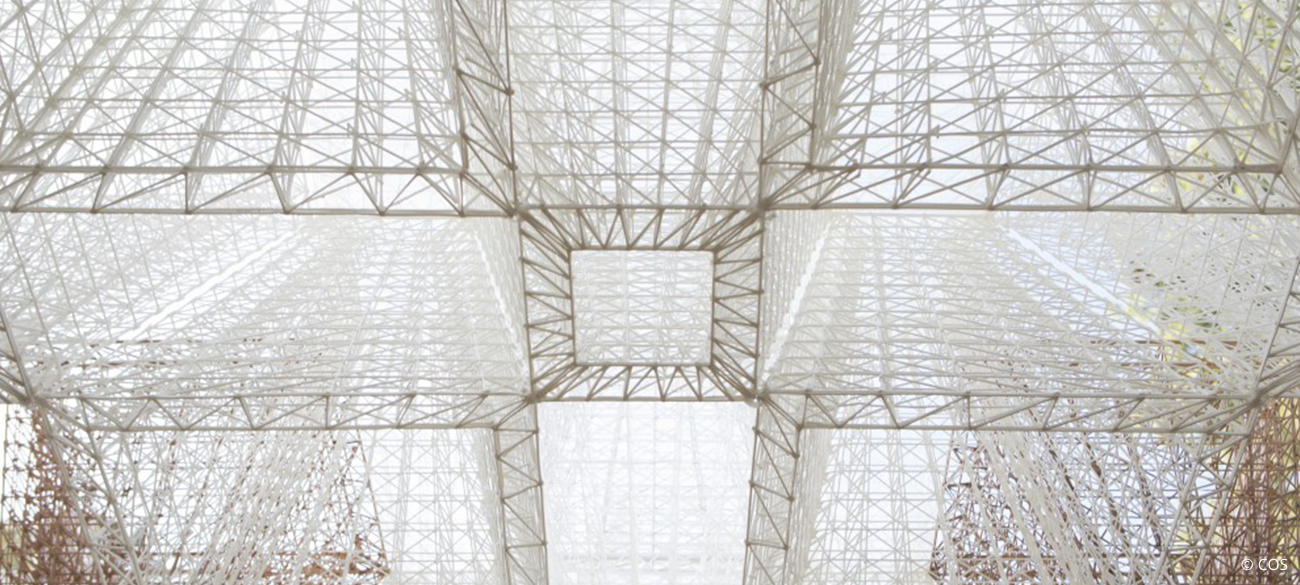Reuse & recycle: 'Plastic fantastic' remarkable retail concepts
Single-use plastics are amongst today’s evilest evils. Luckily, refreshing possibilities and alternatives to (re)use waste arise, turning plastics into resources for creative purposes. The following brands, retailers and architects already use the circular economy approach.
For the majority of those with access to (social) media, it won’t be the first time to hear that we are using way too much plastic. On top of that, almost all plastics ever made still exist today. Fortunately, the nearly indestructible material is increasingly being replaced by bioplastics and other easier recyclable materials, such as paper, carton, and several types of metal. But what to do with all the existing plastics that we can’t seem to get rid of during the planet’s existence? Reusing and recycling still seem to remain the best options.

Inspiring influencers
High-end fashion label Raeburn has been striving to do exactly so since 2009. Following their core values ‘raemade’, ‘raecycled’ and ‘raeduced’ they don’t only make their garments of used materials; their retail store in East London too was created with sustainable materials that had lived a previous life. The recycled and recyclable store, that used to host monthly sustainability themed events, talks and workshops, has now closed. The good news, though, is that we take inspiration from their ideas into the future.
Eyewear brand Ace & Tate, on the contrary, decided recently to open a new store , designed to meet their goal of becoming carbon neutral this decade. No ‘virgin’ plastics were used. Instead, cooperating with Plasticiet resulted in playful-looking walls with large pieces of visible plastics. Former food packaging and toys became part of the playful design of their new and funky Antwerp-based store.
“With more cool and practical alternatives and long-lasting solutions plastic can still be fantastic”
Plastic can still be fantastic
The synthetic ‘demon’ is also increasingly used as the main component for the creation of design elements. The innovative designer Enis Akiev has transformed plastic waste into decorative tiles, including marble effects. Last year, the Dutch studios Overtreders W and Bureau SLA, covered one of the Dutch Design Week pavilions with 9,000 Pretty Plastic shingles: ‘the first 100% upcycled cladding material’, as the makers claim rings.

Apart from recycled PET and other categories of plastic, bioplastics are gaining popularity in the fashion industry as a worthy alternative. Designer Mamou-Mani built an art installation for COS made out of 700 pieces of 3D printed ‘rocks’ of bioplastics combined with wood at last year’s Milanese fashion week. He said about his concept: “Technology alone doesn't really matter. It's what you do with it. And to me, it's only interesting if we are helping the planet.”
These projects and their initiators raise hope for a greener future and for a fashion industry that will soon replace new plastics by healthier options. Our dream is a world without ‘freshly’ produced plastics, but with more cool and practical alternatives and long-lasting solutions to deal with yet existing materials, just like the examples above. This way, plastic can still be fantastic.
Written by Soraya Jahan
Share article
